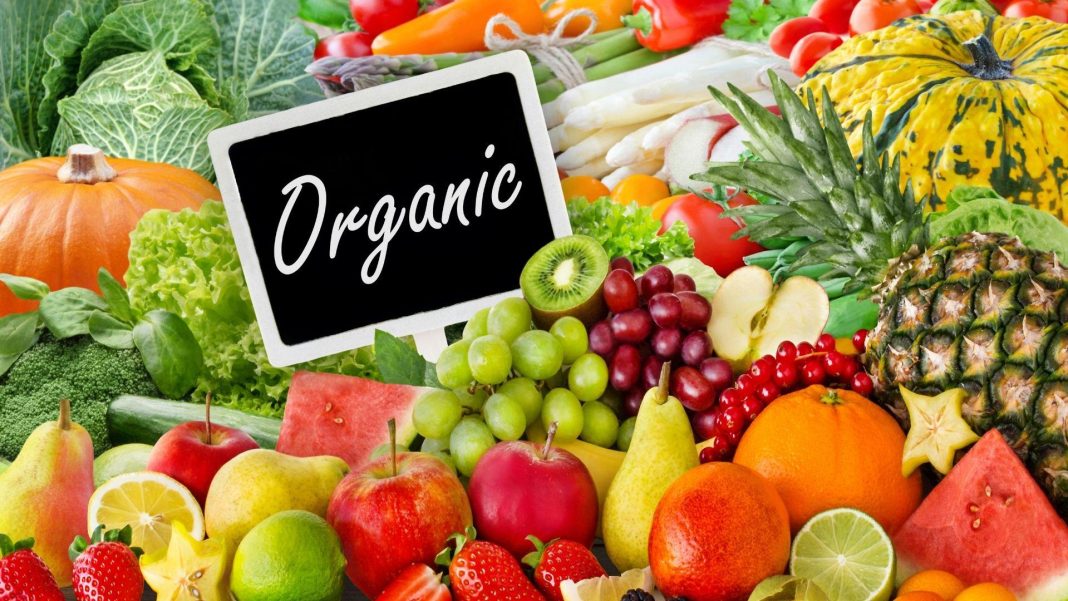In recent years, the organic food industry has experienced a meteoric rise, driven by a widespread perception that organic products are inherently healthier and more beneficial for family health. However, a closer examination of the evidence reveals that the purported advantages of organic foods may be overstated. This article aims to critically analyze the necessity of organic food for maintaining family health, drawing on scientific studies, nutritional data, and economic considerations. By unpacking the myths surrounding organic products and comparing them with their conventional counterparts, we will explore whether the premium prices associated with organic foods are justified or if families can achieve optimal health without them. Through a confident and analytical lens, this article seeks to provide clarity on a topic often clouded by marketing and misconceptions, ultimately empowering families to make informed dietary choices.
Evaluating Nutritional Parity Between Organic and Conventional Foods
When it comes to choosing between organic and conventional foods, the focus often shifts to nutritional content. Many consumers believe that organic options inherently offer superior health benefits, but research paints a more nuanced picture. Studies comparing the two types reveal that the differences in vitamin and mineral content are minimal. While some organic foods may contain slightly higher antioxidant levels, these differences are often not significant enough to impact overall health. Furthermore, the nutritional content of any food—organic or not—depends heavily on factors such as soil quality, harvesting methods, and even the climate in which the food was grown.
- Antioxidant Levels: Some organic foods may have higher antioxidants, but variations are minor.
- Vitamin Content: Minimal differences found between organic and conventional produce.
- Mineral Composition: Both farming methods yield similar mineral content.
Beyond nutritional content, the discussion often extends to pesticide residues, with organic foods touted as the safer option. However, the residue levels in conventional produce are regulated and kept within safe limits. The potential health benefits of consuming organic foods do not necessarily outweigh the benefits of a balanced diet rich in fruits and vegetables, regardless of their farming origins. The key is to focus on a varied diet that meets nutritional needs rather than the method of production.

Understanding Cost-Effectiveness and Accessibility in Family Diets
When considering the dietary needs of a family, it’s essential to balance both cost-effectiveness and accessibility without compromising nutritional value. The quest for optimal health does not necessitate turning to high-priced organic options. In fact, conventional foods can offer the same nutritional benefits at a fraction of the cost, making them an economically viable choice for families. Understanding that nutrient density and variety are key components of a healthy diet can guide families in making informed decisions.
- Cost Savings: Conventional produce is generally less expensive than organic, allowing families to purchase a wider variety of foods.
- Availability: Conventional foods are more readily available in local markets, reducing the need for special trips to specialty stores.
- Balanced Nutrition: Emphasizing a diverse range of fruits, vegetables, grains, and proteins ensures a balanced diet, regardless of organic status.
By focusing on these aspects, families can maintain a nutritious diet that supports health and wellness, without the financial strain often associated with organic foods. This approach not only broadens access to a variety of foods but also encourages sustainable eating habits that align with both health and budgetary goals.

Analyzing Pesticide Residue and Health Impact Concerns
When it comes to evaluating the presence of pesticide residue in conventionally grown produce, it’s essential to look at the data through a lens of scientific scrutiny. Research indicates that the levels of pesticide residue found on most fruits and vegetables are generally well below the safety thresholds established by regulatory bodies such as the EPA and the FDA. These regulatory standards are designed to ensure that even the highest consumers of these foods remain within safe consumption limits. Furthermore, conventional farming practices have evolved to minimize the use of harmful chemicals, employing Integrated Pest Management (IPM) strategies that reduce the overall pesticide footprint.
Critics of conventional agriculture often raise concerns about potential health impacts, yet studies consistently demonstrate that the health risks associated with pesticide residues are minimal compared to the nutritional benefits of consuming a diet rich in fruits and vegetables. The following points highlight the key findings from recent research:
- Comprehensive Risk Assessments: Numerous risk assessments conducted globally show that the risk from pesticide residues is negligible.
- Balanced Dietary Guidelines: Health organizations continue to recommend a diet high in fruits and vegetables, regardless of their organic status.
- Technological Advancements: Improved agricultural technologies have led to more efficient and targeted pesticide application, reducing overall exposure.
while organic foods are a personal choice, the existing evidence does not substantiate a significant health advantage over conventional produce when it comes to pesticide residues.
Recommending Balanced Diet Strategies Beyond Organic Choices
For families seeking a nutritious diet, focusing on a well-rounded approach can be more impactful than prioritizing organic labels. A balanced diet is about variety and moderation, and there are several strategies to achieve this without exclusively relying on organic foods. Here are some key considerations:
- Prioritize Whole Foods: Incorporating more fruits, vegetables, whole grains, and lean proteins can significantly enhance nutritional intake. Fresh, frozen, or canned options can be equally beneficial when prepared properly.
- Embrace Seasonal and Local Produce: These options are often fresher and more nutrient-dense, supporting local economies and reducing environmental impact.
- Focus on Nutrient Density: Opt for foods that are rich in vitamins, minerals, and essential nutrients. This can be achieved through mindful choices rather than organic status.
- Educate on Portion Sizes: Understanding appropriate portion sizes helps maintain a balanced diet and prevents overconsumption of even the healthiest foods.
By adopting these strategies, families can enjoy a diet that supports overall health and well-being, without the need for an organic-only mindset.



